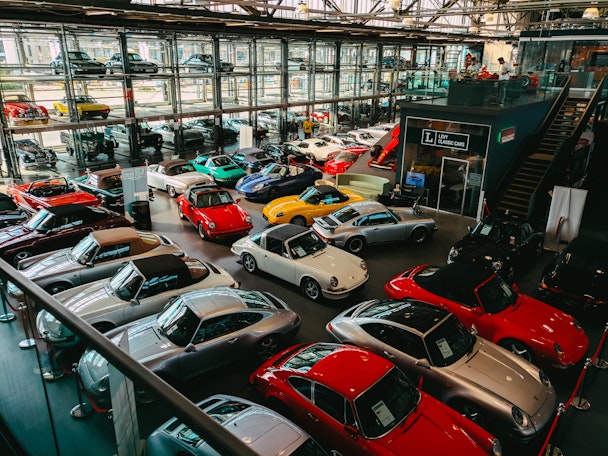The future of car buying is probably not what you think
Most people are experienced online shoppers who love the experience of shopping digitally as much as the convenience. But if you asked online users to spend £15k, £20k or more on a practical purchase that is something they will live with every day for the foreseeable, such as a car, consumers tend to rethink this buying method. Kevin Allen, strategy partner at The Maverick Group, assesses why this may be changing for the car industry.

The Maverick Group on how car retailers can persuade digital consumers to shop and make larger purchases online
Used car retailers, flush with venture capital money, are trying to get a new generation of digitally-born consumers to purchase their new vehicles online. They don’t expect us to touch it, sit in it or test drive it before purchase; just give them the money and they’ll deliver – as if a new car is no different than a dress, pet food or toilet paper.
For most of us a car is still different. It’s a more complex purchase; there are lots of details we want to consider; there’s a big emotional dimension because it plays such a significant role in our everyday lives; and most of us don’t have the same confidence in our knowledge compared to our fashion or grocery decisions.
This is why it’s not surprising that when you really talk to people about how they are going to buy their next car, very few say they’ll buy wholly online, sight unseen. In fact, research we commissioned for our client Pendragon showed less than 15% of drivers in the UK want to buy this way. Most of us want to talk to someone who knows a lot more than we do, and then we want to experience it for ourselves before we sign away that much money.
But here’s the paradox. Most of us don’t like having to go to a car dealership. We don’t like the way so many car dealers talk to us, and a massive 85% of us worry they’re going to try and rip us off. These concerns are especially acute for women, who now represent more than a third of car owners.
This paradox sits at the heart of why I expect there to be a profound transformation in UK car retailing over the next few years. As much as I hate stereotypes, our research for Pendragon seems to confirm many of the stereotypes that have attached themselves so firmly to car dealers, especially used car dealers. While other retail sectors have been positively transformed through a combination of technology, customer service and retail design, much of the UK car trade appears to remain rooted in a model designed by men who love talking about cars, for men who love talking about cars. In 2022, most buyers don’t fit that profile.
One way to resolve this paradox and make car buying a better experience is undoubtedly with the new ‘hybrid’ buying model that Pendragon has developed for its CarStore brand. Compared to traditional dealers that ‘also show their stock on a website,’ CarStore has been designed as a digital-first brand with a fully-integrated support and service physical infrastructure.
That means whenever a potential buyer finds a car they like the look of, they can talk to an advisor to discuss in more detail whether it’s the right car for their needs. And if they want extra confidence without having to come into the retail center, the advisor will send them a video so they can explore that specific car in detail. And they still have the option to come to the center and chat in-person, where they can also take a test drive.
This move from traditional high-pressure car selling to a more consultative advisory and personal service is just one of the drivers I see changing the car retail landscape.
The second will be how high streets and shopping centers evolve in a world where traditional shopping has pivoted to e-commerce. The spaces will continue to exist, but the function of those spaces will change. Many will become physical showcases for a succession of temporary retail experiences and brand pop-ups. This creates great opportunity for sectors including car retail that have historically been excluded by the cost of retail space in these areas. Retailers that embrace new technology and design methods that allow them to create eye-catching ways to showcase their products and interact with customers in areas of high footfall will become winners.
Finally, there’s the electric elephant in the room. If the government’s promise (or threat) to make the UK an electric vehicle (EV) nation by 2030 is for real, then the consequences for the car retail sector will be significant, even if the nature of that change remains unpredictable.
For me, the biggest question though is not about the technology or the car brands that emerge as the EV winners – it’s about the customer: if car conversations have historically been dominated by the opinions of self-styled petrolheads, what happens when cars no longer run on petrol?
Content by The Drum Network member:

The Maverick Group
WE HELP BRANDS UNLOCK THEIR MAVERICK POTENTIAL. In the battle for hearts and minds the Mavericks have the advantage. Those that know that it isn’t the size of...
Find out more
